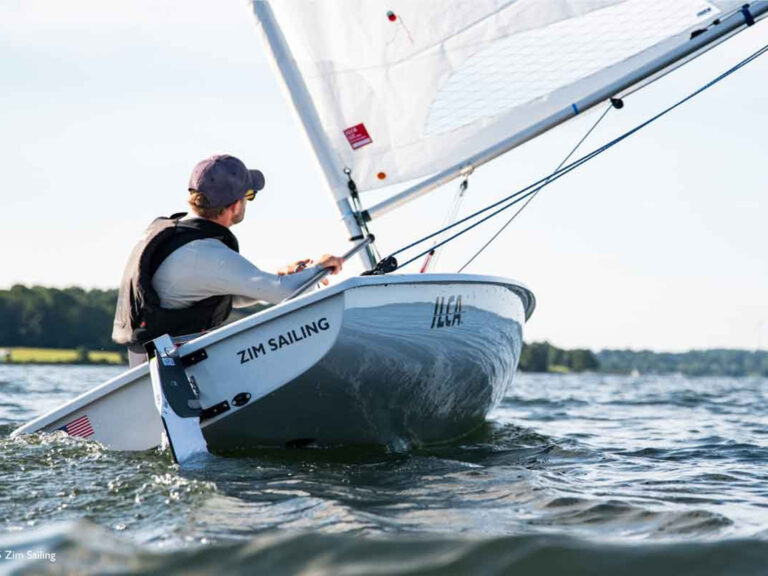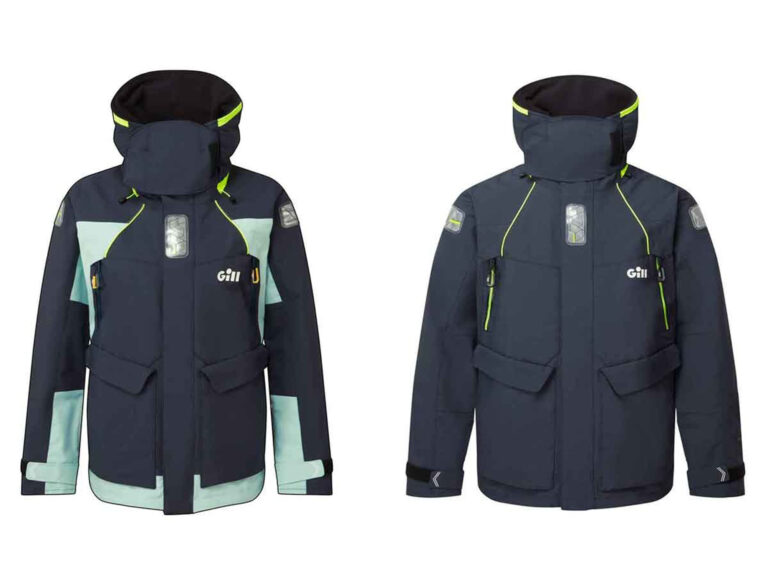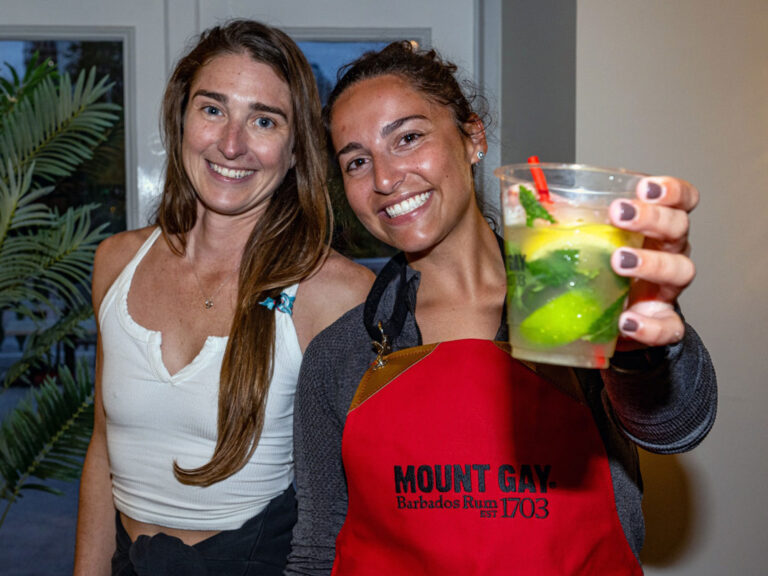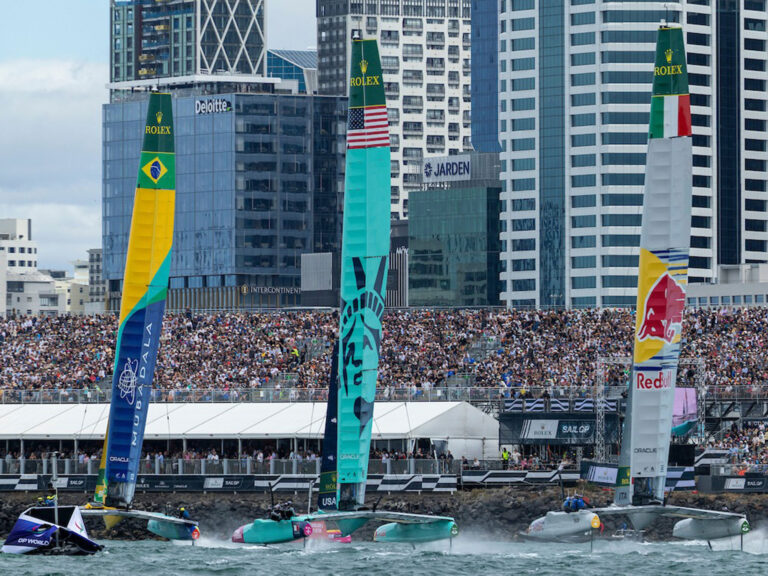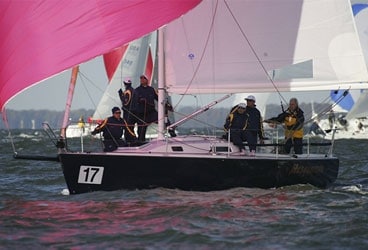
FBJ105s368
The J/105 class is flourishing. This year’s North American championship, which took place last weekend in Annapolis, attracted 69 boats– twice as many as last year, five times more than the inaugural NAs in 1996. The reason for the class’ growth is obvious, says the man who has won its last two NAs. “You can sail with a group of friends and still be competitive,” says Tom Coates. “What other fleets can you do that in?”
In Annapolis, camaraderie fueled the victory by Coates and his Masquerade crew — Chris Perkins, Mark Chandler, Steve Marsh, Tim Scherer, Will Sharron — and wove its benign web throughout the fleet. Because of the 105’s forgiving design, choosing a crew is less about fulfilling the physical demands of each position and more about team synergy. “There’s no job on the J/105 that’s really all that physically demanding,” says Coates. “Although you sure don’t feel that way at the end of the day.”
The seven-race series took Masquerade on an emotional roller coaster. After winning the round robin preliminaries, the team faltered on Saturday — “We blew it,” says its skipper — and entered Sunday’s final race sitting in third place, five points out of first.
“The strategy for the last race was: ‘Let’s forget about what place we’re in and just go sail,'” says Coates. “We proceeded to go out and sail ourselves into 20th place.”Approaching the first leeward gate, Masquerade trailed 19 boats, 17 of which had rounded the right-hand mark and were headed left. Seeing that the lower left was heavily affected by the fleet’s spinnaker wash, tactician Chris Perkins made the call to go right. “Well, we get over to the right and we get a lift,” says Coates. “Half the boat is saying we’ve got to tack now, and we’re beginning to kick ourselves because two minutes before we could have crossed half the boats on the other side. But as luck would have it the breeze came back. We crossed all but one boat.”A lucky shift can bail you out of a jam, but nobody wins championships on luck alone. Coates credits his veteran crew, which makes boathandling an afterthought, and Perkins, who’s developed the enviable habit of being right. “There are plenty of times when I might not have made the same calls [Perkins] makes,” says Coates. “But most of those times I would have been wrong. That’s why I trust Chris.”Coates’ trust in his shipmates stems from his own development as a sailor. “It’s funny, I think I’ve always had more confidence in the crew than the crew had in me,” he says. “In the beginning, I was newer than the crew. I started sailing 11 years ago and the crew had been sailing all their lives.” Over the years, Coates’ crew have honed him into a crew’s ideal skipper, one that has the ability to, as the pop singer Rihanna puts it, “Shut Up and Drive.” Coates keeps his eyes on the sails and the boat moving through the water. “I actually try to focus on not looking around,” he says. “I try to keep my head in the boat. We have Chris [Perkins] for overall tactics, Mark Chandler for close in tactics, and everyone else is looking around. What do I need to look around for?”By sticking to their specific roles, everyone aboard Masquerade advances the team’s overall goal, the goal to which every boat on every racecourse aspires, which Coates has boiled down to its essence. “Here’s the thing,” he says, “Sailboats are not fast. We’re just trying to make our boat go faster than the other boat, if even by just by a foot.”

